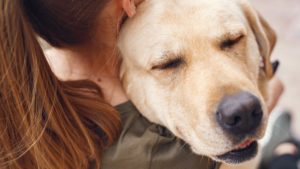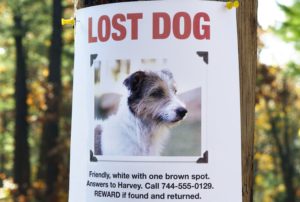We all want our pets to live long, healthy lives. While we typically recognize substances that are harmful for humans, pet owners are not always aware of the strange items that can make animals sick. Unfortunately, there are plenty of unexpected substances that are harmful – perhaps even deadly – to animals. Grapes, fireflies and topical analgesics are just a few examples of items that create life-threatening emergencies for pet owners every single day.
In recognition of National Poison Prevention Week, Conway Area Humane Society wants to share an important list of items you’ll want to keep out of your pet’s reach. Whether your pet has feathers, fur, claws or dewlaps, we’d like to provide guidelines to keep your loved one safe. This list is not comprehensive, but it can be used as a starting point to begin planning for a safe home environment. Consult with your veterinarian for questions about specific household items and their safety for your pet.
If you suspect your pet has come into contact with anything harmful, here are some steps you can take:
- Call your veterinarian or local emergency veterinary hospital immediately.
- The ASPCA Poison Control Center is another excellent emergency resource to use. They can be reached 24 hours a day, 365 days a year, at (888) 426-4435.
- You can reach out to us at the Conway Area Humane Society during business hours at (603) 447-5955 or email us for non-urgent questions.
Poisonous to All Animals
- Alcohol and other ethanol products, such as rotten fruit or yeasty dough
- Chocolate, coffee and caffeine
- Fruit pits and fruit seeds, such as apple seeds (cyanide)
- Household chemicals: Many chemicals smell sweet and alluring to your pet!
- Human medications
- Pain/anti-inflammatory pills and ointments
- Antidepressants
- ADHD medications
- Anti-diabetic medications
- Diet Pills
- Cold medications
- Cancer medications
- Vitamins and supplements
- Insecticides/pesticides/rat or insect bait
- Onions, chives, garlic and leeks
- Xylitol (sweetening agent commonly found in sugar free foods, such as candy and gum)
Poisonous to Dogs
- Avocados
- DEET (can be absorbed through dog’s skin)
- Grapes and raisins
- Macadamia nuts
- Mothballs
- Tea Tree Oil
- Iron
Poisonous to Cats
- Grapes and raisins
- Medications
- Pain and anti-inflammatory medications are especially deadly to cats.
- Antidepressants have an attractive scent to cats.
- Mothballs
- Peppermint oil
- Plants: Many plants are toxic to cats. In particular, keep your cat away from:
- Aloe
- Azalea
- Chrysthanthemum
- Hyacinths
- Lilies
- Marijuana
- Mistletoe
- Rhodedendron
- Sago Palm
- Tulip
- Tea Tree Oil
- These items can lead to strangulation or block your cat’s intestines if swallowed:
- Chicken bones
- Dental floss
- Christmas lights/tinsel
- String/Yarn
- Toys with small/movable parts
Poisonous to Birds
- Avocado
- Heavy metals: Birds are sensitive to heavy metals found in paint, linoleum, twist ties, and other items birds typically love to chew. Carefully monitor what your bird puts in its beak!
- Excess salt and fat
- Smoke and aerosols wreak havoc on your bird’s delicate lungs.
- Teflon: Vapors from burning teflon hurt your bird’s lungs. Consider replacing teflon-coated pans.
Small Animals
- Leafy green parts of a tomato are toxic to hamsters.
- Ferrets should not eat grapes.
- Tomatoes and eggplant are toxic to hamsters.
- Xylitol is especially deadly to small animals – do not feed them food with sugar substitutes!
Reptiles/Amphibians
- Avocado
- Bleach fumes
- Fireflies: one firefly can kill a reptile!
- All insecticides, especially pyrethrin
- Many plants are poisonous to reptiles and amphibians. Do not introduce foreign plants into their habitat.
- Spiders, ticks, millipedes, centipedes and scorpions
- Zinc
By securing these items away from your pets, you are ensuring their health and longevity. This list is not inclusive. If your animal ingests any unusual substance, call your local veterinarian for feedback and advice. There are no dumb questions when it comes to maintaining your pet’s health.








